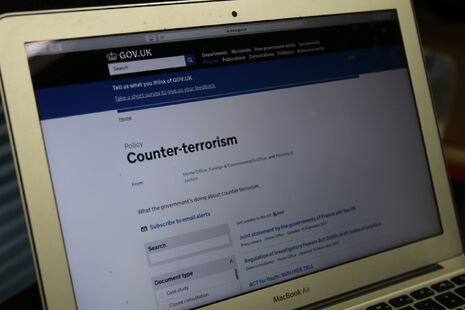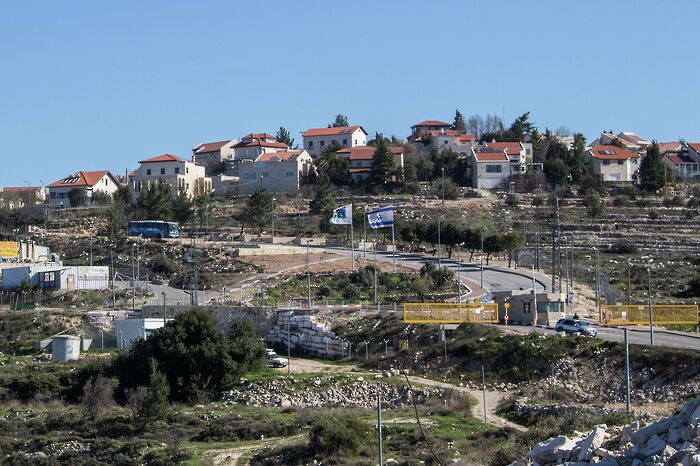Academics criticise University’s ‘heavy-handed’ Prevent strategy
After the University’s intervention in a PalSoc panel discussion, there is growing discontent with the implementation of Prevent strategy

Members of the University have spoken out against Cambridge’s implementation of the government’s Prevent legislation, questioning the University’s commitment to “light touch” compliance.
The comments follow an intervention made by the University administration in a panel discussion organised by the Palestine Society (PalSoc). The University replaced a planned chairperson with a “neutral” alternative at the discussion, held in November, about the Boycott, Divestment, Sanctions (BDS) movement, which seeks to pressure Israel into ending the occupation of Palestinian land.
In response to the replacement, PalSoc published an open letter which condemned the intervention as “an intolerable violation of academic freedom”. The letter was signed by over 500 people, including notable American academic, Professor Noam Chomsky.
In a later statement to Varsity, Ed McNally, co-Chair of PalSoc, said that the University had “mistakenly applied the Prevent duty, and in doing so violated basic rights which they have a responsibility to protect.”
However, a spokesperson for the University told Varsity that the decision to install their own chair was made “following calls from the organisers for extra safety measures”.
The statement continued: “The University is fully committed to freedom of speech and expression. We do understand that certain events and issues invoke strong feelings among people and communities. But we believe it is important that staff, students and visitors to the University can participate fully in legitimate debate”.
The intervention has brought to head long-running concerns about the University’s implementation of Prevent legislation. A number of academics have spoken to Varsity to express their discontent.
Dr Waseem Yaqoob, Branch Secretary of Cambridge University and College Union, told Varsity that “the way in which the University administration is choosing to comply with the Prevent duty is leading to increasingly heavy-handed policing of speech on campus,” and that interventions like that affecting the PalSoc have “above all affected Palestinian voices, but others too.”
He continued, “A joint monitoring initiative launched last year by CUSU and UCU shows that other student societies – the Kurdish Society and Islamic Society, for example – have been affected. The distribution of these incidents raises serious issues around equality and fairness.”
In October 2016, the University produced a “Prevent explainer”, which stated that implementation of the policy would be “light touch” and its “impact on the University community [would] therefore be negligible.” However, this description was contested by both Dr Yaqoob and CUSU President, Daisy Eyre.
Speaking to Varsity, Eyre said: “Currently, the way Prevent is being rolled out makes some Cambridge students feel unsafe. Efforts of being 'light touch' are clearly falling short and this is leading to certain voices within the institution being privileged and others silenced.”
Dr Yaqoob also criticised the University’s “lack of transparency” in implementing Prevent: “The university originally promised a ‘light-touch’ implementation of Prevent. What it has actually done is leave much of the decision-making to the discretion of administrators.”
“Staff but especially students have often been given administrative fiats that alter the running of events at short notice: the debacle with the Palestine Society a fortnight ago is only the latest example.”
When Varsity took these criticisms to the University for comment, a spokesperson said: “The University’s response to the Prevent duty has sought at all times to be transparent, consultative and proportionate. The Prevent Committee, which reports to the General Board and Council, includes representation from students, the Colleges, the Proctors and relevant University officers. The committee has overseen numerous briefing and training sessions across the academic and student body, and has made much of its work available through a Prevent website.”
While the University has its own policy on the Prevent legislation, the collegiate system means that individual colleges are able to make autonomous decision about how to implement Prevent with regard to events happening on their own property.
Cambridge colleges have statutory obligations under Prevent, but are collectively advised by the Head of Intercollegiate Services and the Chair of the Senior Tutors’ Committee, both of whom attend the Prevent Committee.
Concerns have also been raised over Prevent training offered by the University. As part of the University’s Prevent implementation, it has established a training programme for staff and students. The programme, completed through an online platform, aims to make staff “aware of the process of radicalisation and definitions of extremism”. All staff are expected to complete the initial module.
The programme has attracted negative comments from University academics. Both Dr Yaqoob and Dr Priyamvada Gopal, a Teaching Fellow in English at Churchill College, tweeted screenshots of of the University’s online Prevent training, with critical comments.
Dr Gopal tweeted a screenshot of one of the questions posed in the online training, which asked participants to identify extremist views from a list, which included: “Anti-immigration”, “Pro-life”, “Vocal support for the creation of a Palestinian state?”, and “Opposition to Israeli West Bank settlements”.
Speaking to Varsity, Dr Gopal said that training “explicitly targets as indicators of extremism any support for the Palestinian cause”. According to Gopal, the University’s definition of extremism was “selective and specious”, leading to situations which could “violate equalities legislation.”
When Varsity conducted the online training, once the question to which Dr Gopal was referring had been answered, we were redirected to a ‘feedback’ that said that it had been a “trick question”. The explanation stated that none of the views listed under the question could necessarily be considered extremist in themselves because “holding these views may be legitimate provided that they are not expressed or furthered by statements, deeds or actions which result in harassment, intimidation or threats of violence against individuals or society itself”.
Dr Yaqoob told Varsity that, while the University’s definition of extremism was “vague”, the training did not “directly state” that opposition to Israeli settlement in Gaza, for example, could be considered “extremist”.
He continued, “This approach must not be entrenched, and must not become the new status quo at Cambridge, or other universities.”
Note: This article originally incorrectly stated that the Boycott, Divestment and Sanctions movement seeks to pressure Israel into ending the occupation of land claimed by Palestine. The land in question is in fact Palestinian. The article was amended to this effect on 25th November
 News / Judge Business School advisor resigns over Epstein and Andrew links18 February 2026
News / Judge Business School advisor resigns over Epstein and Andrew links18 February 2026 News / Gov grants £36m to Cambridge supercomputer17 February 2026
News / Gov grants £36m to Cambridge supercomputer17 February 2026 News / Hundreds of Cambridge academics demand vote on fate of vet course20 February 2026
News / Hundreds of Cambridge academics demand vote on fate of vet course20 February 2026 News / CUCA members attend Reform rally in London20 February 2026
News / CUCA members attend Reform rally in London20 February 2026 News / Union speakers condemn ‘hateful’ Katie Hopkins speech14 February 2026
News / Union speakers condemn ‘hateful’ Katie Hopkins speech14 February 2026










